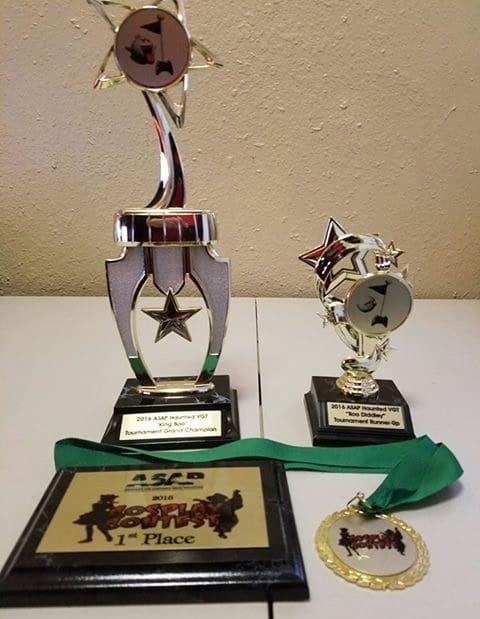
The Advocates for Substance Abuse Prevention (ASAP) coalition serves the top two counties of the northern panhandle of West Virginia. The coalition got creative and utilized trending youth activities to draw youth to prevention work.
The coalition is located only a half hour from Pittsburgh, PA, and roughly three hours from Columbus, Ohio. Based on a 2015 United States Census, the total population served is 53,165 combined for Brooke and Hancock counties. One of the largest cities, Weirton, resides in both counties and has always had a proud tradition of steel making and industrial employment. Unfortunately, this tradition has seen many declines in recent years and the increase in unemployment has hit the area hard, causing many families and young adults to move or have long commutes to find decent work.
Hancock County borders a major interstate where drug trafficking occurs easily between three states. The local news reports multiple drug arrests in the Ohio Valley almost daily with incidents involving drug trafficking, abuse, and death, as is illustrated by the story of four heroin overdoses in Weirton in one weekend. The ASAP coalition started as a small committee who met to discuss the drug problems in the area in 1996 and grew to where they are today. The coalition’s main focus remains towards community youth with the mission of “working together to reduce substance abuse in the Brooke and Hancock communities, focusing on youth and families, by means of prevention efforts in community education, mobilization, and the change of values and beliefs.”
In 2014, ASAP found a group of youth to form a new committee called the Youth Council. Thanks to these youth, they have gained new insight about how they should be hosting and promoting alternate activities to community youth, and actually get them to participate. They have seen a vast increase in participation at events targeted towards youth. One such activity, that has become an instant hit, is the ASAP Youth Council Video Game Tournament.
Youth focused activities are hard for any group, but thanks to the ASAP Youth Council, the coalition has been having success getting youth involved.
“Their input is invaluable, and when you have youth telling you “don’t advertise you are doing drug prevention to kids or they won’t come,” you listen,” said Mary Ball, ASAP Coordinator. “Their ideas were simple, focus on what kids like to do, then use that as a way into their world. So, we did. The first event we held was a video game tournament that we used for multiple purposes. First, it was a great fundraiser for the kids. Second, it was the perfect draw to get youth to show up. Third, it was fun! We chose a game everyone, young and old could play (Smash Bros.) and changed how we promoted the event to word-of-mouth, flyers where kids hang out, and utilized social media promotions. The response was amazing. But nothing in the advertising said anything about substance abuse prevention. We had over 50 attendees at our first event, which was a small miracle compared to the 10-12 we normally got, if we were lucky.“
To incorporate the message of prevention, displays were placed at the event and announcements dispersed, reminding attendees about the dangers of sharing prescriptions; where to dispose of prescriptions; and pointing out how much fun they were having at an alcohol-free event.
The event not only drew youth, but the parents, friends, grandparents of the youth who participated, did not leave. They stayed for the entire thing to cheer those competing in the tournament on, expanding the audience from the target of just youth, to all ages. The success of this program led the coalition to try other things, such as taking advantage of the Pokémon Go game to bring people to ASAP by hosting a “Lure Party.” The coalition got creative and added a cosplay contest to the video game tournament and increased participation by almost 10 percent. The coalition even designed pop culture prevention buttons that kids snag off the prevention tables because they want to wear that message.
“Listen to your youth members. They are smart, they know what other kids want to see and will participate in,” advises Ball. “Do not be closed off to stepping out of your adult-zone and entering their world. If we want kids to listen to our messages, we need to go to them and not expect them to come to us.”


